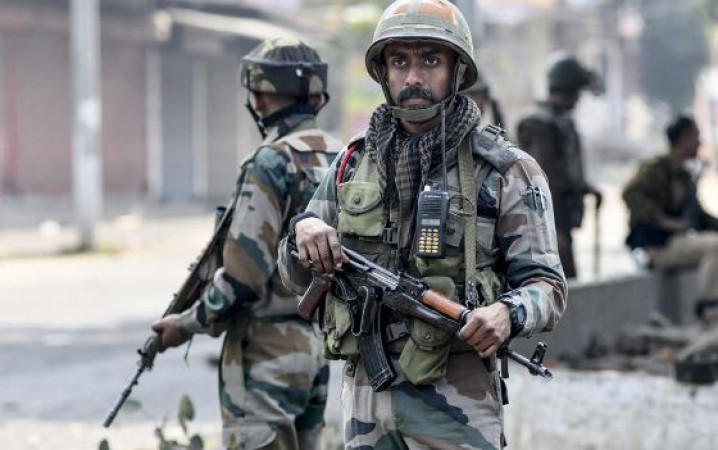
New Delhi: The Armed Forces (Special Powers) Act, commonly known as AFSPA, is a legislation that grants special powers and immunity to the armed forces in certain areas of India. Enacted in 1958, AFSPA empowers the military personnel to maintain public order in regions that are affected by insurgency, unrest, or other serious security concerns. The act was initially introduced in the northeastern states of Assam and Manipur, and it has been enforced in various states over the years due to ongoing security challenges. While proponents argue that AFSPA is necessary to curb insurgency and maintain law and order, critics raise concerns about its potential for human rights abuses and its impact on civil liberties.
Key Provisions of AFSPA:
Special Powers: AFSPA grants the armed forces the authority to arrest and search without warrants, and to use force, even causing death, if they believe it is necessary for "maintenance of public order." This power is vested in areas declared "disturbed" by the state or central government.
Immunity from Prosecution: One of the most controversial aspects of AFSPA is the provision that grants immunity from prosecution to military personnel for actions taken under the act. Unless the government grants permission for prosecution, soldiers are shielded from legal action, making accountability difficult to establish.
Detention: The act permits the detention of individuals based on suspicion alone, which raises concerns about human rights abuses and potential misuse of power.
Reasons for Imposing AFSPA:
AFSPA is usually imposed in areas grappling with insurgency, militancy, and unrest. The primary reasons for its imposition are:
Security Concerns: Regions affected by armed conflict, militant activities, or separatist movements often face severe security challenges that require a strong military presence.
Law and Order: In areas where civil administration struggles to maintain law and order due to the presence of armed groups, the deployment of the armed forces under AFSPA is intended to restore stability.
Protection of Armed Forces: Supporters of AFSPA argue that it is necessary to protect military personnel who are operating in high-risk environments and need legal immunity to carry out their duties effectively.
Controversies and Criticisms:
AFSPA has been a subject of intense criticism from various quarters:
Human Rights Violations: The act has been accused of leading to human rights abuses, including extrajudicial killings, disappearances, torture, and rape. Immunity from prosecution can hinder justice for victims and lead to a culture of impunity.
Civil Liberties: Critics argue that AFSPA infringes upon basic civil liberties by allowing arbitrary arrests, searches, and detentions, which are contrary to the principles of a democratic society.
Lack of Accountability: The lack of accountability for actions carried out under AFSPA raises concerns about the misuse of power and violation of citizens' rights.
Erosion of Trust: The presence of armed forces with extensive powers can erode the trust between the local population and the government, creating a sense of alienation.
Peaceful Alternatives: Some experts contend that a comprehensive approach involving dialogue, development, and political solutions could address the root causes of conflict more effectively than military intervention.
Instances of AFSPA Implementation:
AFSPA has been imposed in several Indian states, primarily in the northeastern region and some parts of Jammu and Kashmir. States like Assam, Manipur, Nagaland, and Arunachal Pradesh have witnessed the prolonged imposition of AFSPA due to insurgency issues.
The Armed Forces (Special Powers) Act is a contentious piece of legislation that reflects the complex challenges faced by India in regions affected by insurgency and unrest. While proponents argue that it is necessary for security and stability, the act's potential for human rights abuses and erosion of civil liberties cannot be ignored. The ongoing debate surrounding AFSPA underscores the need for a balanced approach that respects both security imperatives and fundamental rights, while also exploring peaceful alternatives to address the underlying issues in conflict-affected regions.
Samsung Introduces Galaxy Z Fold5 and Galaxy Z Flip5 Foldable Smartphones to the Indian Market
Lukhmi: The Square Samosa That's Redefining Savory Snacking
Heritage Wonders of Uttar Pradesh: A Tale of Architecture and History